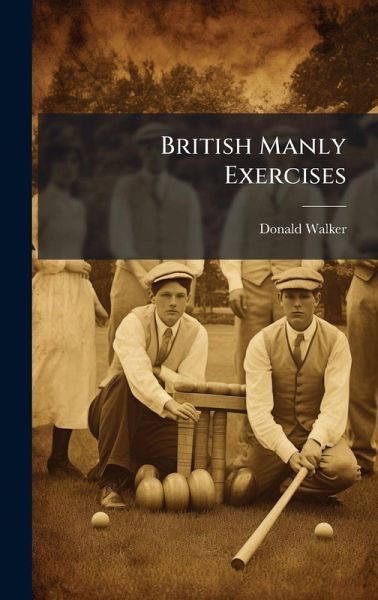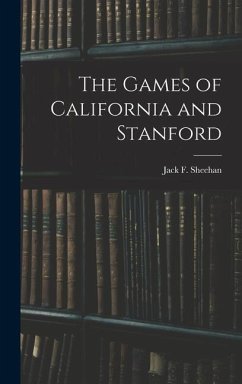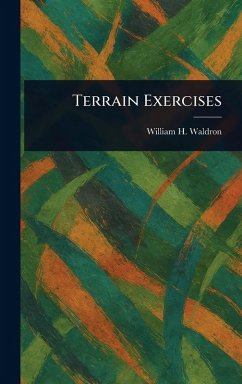
British Manly Exercises
Versandkostenfrei!
Versandfertig in über 4 Wochen
34,99 €
inkl. MwSt.
Weitere Ausgaben:

PAYBACK Punkte
17 °P sammeln!
British Manly Exercises, penned by Donald Walker in 1837, offers a fascinating glimpse into the sporting culture of 19th-century Britain. This historical work details popular recreational activities of the era, including rowing, sailing, riding, and driving. Walker's comprehensive guide provides insight into the skills, techniques, and social contexts surrounding these pursuits. More than just a manual, "British Manly Exercises" reflects the values and ideals associated with British masculinity during this period. The book is invaluable for historians, sports enthusiasts, and anyone interested...
British Manly Exercises, penned by Donald Walker in 1837, offers a fascinating glimpse into the sporting culture of 19th-century Britain. This historical work details popular recreational activities of the era, including rowing, sailing, riding, and driving. Walker's comprehensive guide provides insight into the skills, techniques, and social contexts surrounding these pursuits. More than just a manual, "British Manly Exercises" reflects the values and ideals associated with British masculinity during this period. The book is invaluable for historians, sports enthusiasts, and anyone interested in the social history of Great Britain. Discover the pastimes that defined a generation and shaped the British identity. This work has been selected by scholars as being culturally important, and is part of the knowledge base of civilization as we know it. This work was reproduced from the original artifact, and remains as true to the original work as possible. Therefore, you will see the original copyright references, library stamps (as most of these works have been housed in our most important libraries around the world), and other notations in the work. This work is in the public domain in the United States of America, and possibly other nations. Within the United States, you may freely copy and distribute this work, as no entity (individual or corporate) has a copyright on the body of the work. As a reproduction of a historical artifact, this work may contain missing or blurred pages, poor pictures, errant marks, etc. Scholars believe, and we concur, that this work is important enough to be preserved, reproduced, and made generally available to the public. We appreciate your support of the preservation process, and thank you for being an important part of keeping this knowledge alive and relevant.







![A Guide Book to the Local Marine Board Examination. the Ordinary Examination. [With] the Requisite Elements From the Nautical Almanac for 1865, for the Exercises in Ainsley's Guide Book Cover A Guide Book to the Local Marine Board Examination. the Ordinary Examination. [With] the Requisite Elements From the Nautical Almanac for 1865, for the Exercises in Ainsley's Guide Book](https://bilder.buecher.de/produkte/66/66082/66082562n.jpg)




